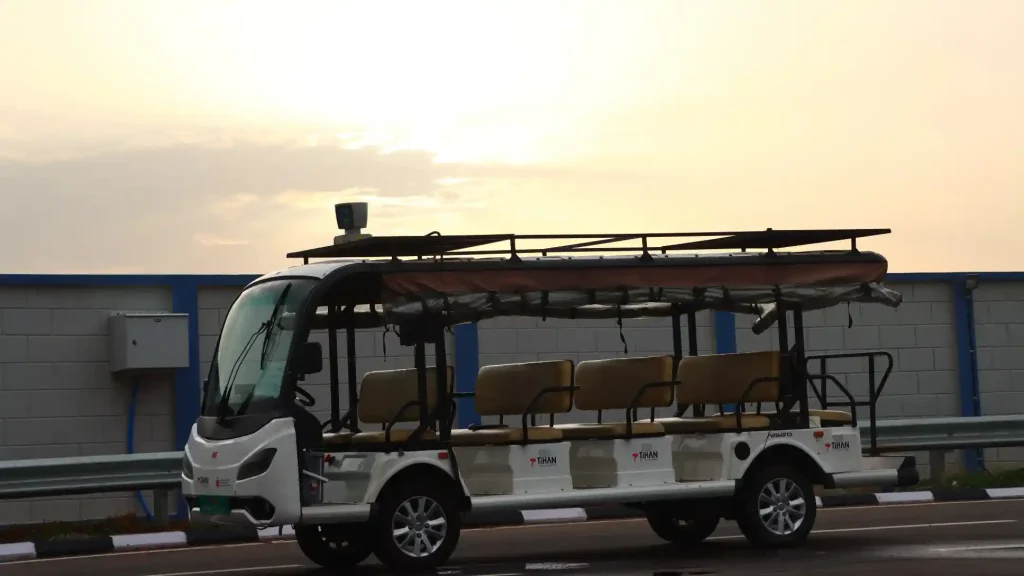The Indian Institute of Technology Hyderabad (IIT-H) has rolled out driverless buses on its campus, making it the first institution in India to deploy autonomous vehicles for daily use.
Fully Electric, No Human Driver
The buses were developed by the institute’s Technology Innovation Hub on Autonomous Navigation (TiHAN). Two variants — a six-seater and a fourteen-seater — are already in operation, ferrying students and staff across the campus. Together, they have carried more than 10,000 passengers since launch.

Safe, Tested, and Ready
Far from being experimental, the vehicles are equipped with Autonomous Emergency Braking and Adaptive Cruise Control systems. These allow them to detect obstacles, maintain safe distances, and adjust speed automatically. TiHAN says the project has achieved Technology Readiness Level 9, meaning the buses are fully validated in real-world conditions.
Preparing India for Autonomous Mobility
The driverless buses are more than a transport solution for IIT-H. They also serve as a live demonstration of India’s growing capabilities in self-driving technology. TiHAN has already built the country’s first autonomous navigation testbed, designed to replicate Indian road conditions for testing and validation of autonomous systems before wider rollout.
Building for Indian Roads
Professor P. Rajalakshmi, who leads TiHAN, said the initiative aims to develop mobility technologies tailored to India’s unique traffic challenges. The testbed, she added, will act as a shared resource, offering infrastructure, data, and controlled testing zones to industry, academia, and government partners.
Training the Next Generation
Alongside the vehicle programme, TiHAN runs training in Artificial Intelligence and Machine Learning to build a skilled workforce for the autonomous mobility sector. The goal is to ensure India has homegrown expertise in designing, operating, and maintaining such systems.
Step Towards the Future
For now, the buses remain confined to IIT-H’s campus. Expanding autonomous transport to public roads will require regulatory approvals, broader safety trials, and solutions for India’s unpredictable driving conditions. Even so, the project is being seen as a significant step toward the eventual rollout of autonomous public transport in the country.
